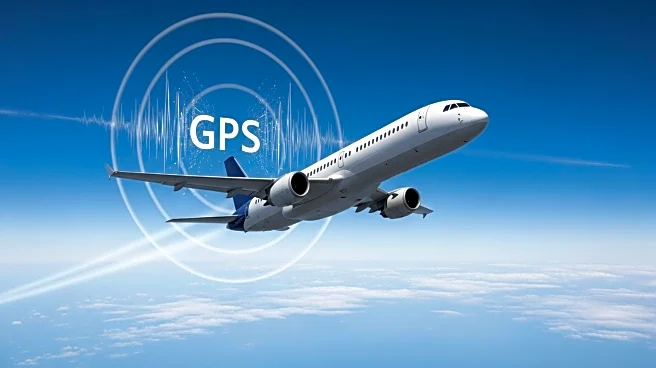What's Happening?
Officials suspect Russia is behind GPS interference on a plane carrying European Commission President Ursula von der Leyen. The aircraft, en route to Bulgaria, experienced disabled GPS navigation services, forcing the pilot to land using paper maps. This incident is part of a growing trend of GPS jamming, particularly affecting countries near Russia. The interference is believed to be a targeted operation, as the flight was the only one affected in the area at the time. European governments have reported an increase in such incidents since Russia's invasion of Ukraine in February 2022, with Baltic states frequently experiencing GPS disruptions.
Why It's Important?
The suspected GPS interference highlights ongoing security challenges faced by European countries near Russia. Such actions can disrupt civil infrastructure, posing risks to public safety and daily life, including navigation systems used by civilians. The incident underscores the need for increased investment in defense and cybersecurity to protect critical infrastructure. It also serves as a reminder of the geopolitical tensions in Eastern Europe and the potential for further destabilization efforts by Russia. The European Commission's response emphasizes the importance of addressing these threats to ensure regional stability and security.
What's Next?
The Bulgarian aviation authorities are investigating the incident to determine the exact cause and responsible parties. The European Commission is likely to continue advocating for enhanced security measures and defense spending among EU member states. This incident may prompt further diplomatic discussions and potential actions against Russia if confirmed as the perpetrator. Additionally, there may be increased collaboration among European countries to develop strategies to counteract GPS jamming and other forms of interference.
Beyond the Headlines
The incident raises ethical and legal questions about the use of technology in geopolitical conflicts. GPS jamming not only affects aviation safety but also disrupts civilian life, highlighting the broader implications of cyber warfare. The event may lead to discussions on international regulations and agreements to prevent such interference. It also reflects the evolving nature of warfare, where technological capabilities play a significant role in national security strategies.












